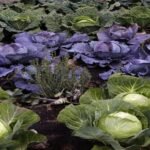Even as it investigates allegations that unapproved genetically modified (GM) rice was exported to Europe, the Centre has yet to make a decision on a research proposal from its own scientists that would allow plants to be genetically modified without the use of conventional transgenic technology.
Unlike previous GM technologies that entailed the introduction of foreign DNA, the new proposal entails the use of gene editing tools to directly modify the plant’s own genes.
Also Read: PM Modi launched 35 crop varieties with special traits developed by ICAR
Scientists at the Indian Agricultural Research Institute are developing resilient and high-yielding rice varieties using gene-editing techniques that have already been approved by many countries, with the goal of having such rice varieties in the hands of Indian farmers by 2024.
However, because it does not involve inserting any foreign DNA, the proposal for Indian regulators to consider this technique as equivalent to conventional breeding methods has been pending with the Genetic Engineering Appraisal Committee for nearly two years.
The IARI previously worked on golden rice, a traditional GM variety that inserted genes from other organisms into the rice plant, but trials were discontinued over five years ago due to agronomic issues, according to Director A.K Singh. No GM food crop has been approved for commercial cultivation in India.
More recent technologies
The Institute has since transitioned to newer technologies such as Site-Directed Nuclease (SDN) 1 and 2. They hope to improve the precision and efficiency of the breeding process by using gene-editing tools such as CRISPR, the developers of which will be awarded the Nobel Prize in Chemistry in 2020.
‘In this case, you are simply modifying a gene that is already present in the plant, rather than introducing a new gene from outside.’ When a protein comes from another organism, it must be tested for safety. ‘However, in this case, the protein is right there in the plant and is being changed slightly, just as nature does through mutation,’ Dr. Singh explained.
‘However, it is much faster and more precise than natural mutation or traditional breeding methods, which involve trial and error and multiple breeding cycles. It has the potential to usher in a new Green Revolution.’
These techniques are being used by a research coalition led by the Indian Council of Agricultural Research (ICAR), which includes the IARI, to develop rice varieties that are drought-tolerant, salinity-tolerant, and high-yielding. According to Dr. Singh, they could be available for commercial cultivation within 3 years.
The draught guidelines for such gene-editing techniques, however, have been stuck with GEAC for nearly two years. A group of senior scientists known as the India Agriculture Advancement Group (IAAG) voiced concerns about the “inordinate delay” in a letter to Prime Minister Narendra Modi last year.
Also Read: India will express its displeasure to France, EU over GM broken rice
According to a senior official, the guidelines were submitted to GEAC in January 2020, following a lengthy public consultation and expert review process overseen by the Department of Biotechnology and approval from its Review Committee on Genetic Manipulation.
There is no foreign DNA
‘The SDN 1 and SDN 2 categories of genome-edited plants do not contain any foreign DNA when they are taken to open field trials,’ the IAAG letter argued, arguing against further discussion with state governments. Former heads of the ICAR, the National Academy of Agricultural Sciences, and the Indian Institute of Science are among the signatories.
‘The United States, Canada, Australia, and Japan are among the countries that have already approved the SDN 1 and 2 technologies as not akin to GM, so such rice varieties can be exported without issue,’ Dr. Singh explained.
Also Read: Livestock feed industry petitioned Central to allow GM crops to alleviate feed scarcity
According to him, the European Food Safety Authority has also submitted its opinion that these technologies do not require the same level of safety assessment as conventional GM, but the European Union has yet to accept the recommendation.


















Add Comment